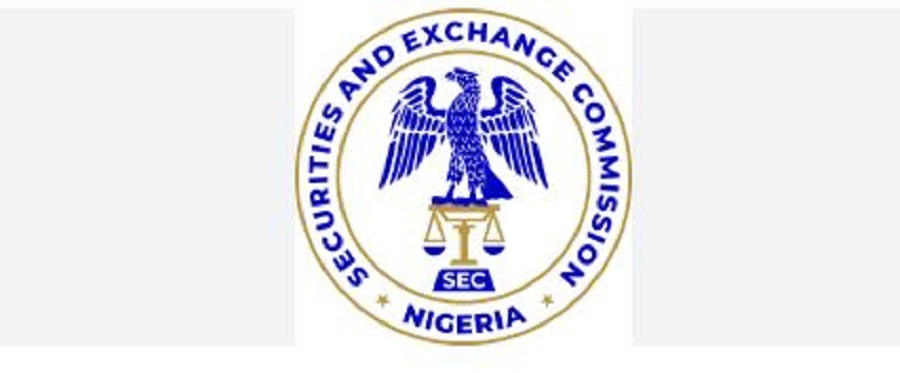E-Financial
High Sell-Off in Nigeria ETF as CBN Relaxes Forex
_4.jpg)
The Nigeria country-specific exchange traded fund plunged Wednesday after the Nigerian central bank abandoned its currency peg, which many blamed for the weakened economy.
The Global X Nigeria Index ETF $NGE declined 12.2% Wednesday on a surge in volume of 1.3 million shares, compared to its average daily volume of 77,000, according to Morningstar data.
Moreover, NGE is now trading at a 18.4% discount to its net asset value after the Wednesday sell-off. Since U.S.-listed international stock ETFs like NGE trade during hours when the foreign markets are closed, the ETF may show disparate prices to their NAVs, especially during more volatile conditions.
Nigeria’s central bank said it would allow the nair exchange rate to be market driven, which could potentially devalue the currency by as much as 36% when the new trading system takes effect June 20, reports Paul Wallace for Bloomberg.
“We’re talking about an open, transparent two-way system,” Governor Godwin Emefiele of the Central Bank of Nigeria told reporters.
“The exchange rate would be purely market-driven. I don’t expect that any other exchange rate will be recognized.”
Market observers have been calling for the central bank to devalue the naira currency in light of plunging oil prices.
Meanwhile, investment in Nigeria has fallen off as foreign investors were deterred by capital controls needed to defend the naira’s peg while domestic businesses struggled to import materials.
After the announcement, three-month non-deliverable naira forward contracts rose to 310 per dollar, compared with the current official rate of 199. Analysts at Johannesburg-based Rand Merchant Bank expect the naira to trade within 280 to 350 against the dollar.
The Global X Nigeria ETF also likely declined on the weaker naira outlook. Since NGE does not hedge its currency exposure, a depreciating naira would mean returns are lowered when converted back into U.S. dollar terms.
E-Financial
SEC Says CMOs Must Renew Registration in January

Securities and Exchange Commission (SEC) has announced that Capital Market Operators (CMO’s) are to renew their registration from January 1 to 31, 2026.

In a bid to make the process seamless, the Commission says it will commence electronic receipt and processing of applications for registration and updates of registration information in the first quarter of 2026.
Dr. Emomotimi Agama, director general of the SEC, stated this during an interview in Abuja.
According to Agama, “These initiatives reflect our commitment to leveraging technology for faster, more transparent, and efficient regulatory processes. The Commission is taking deliberate steps to make regulatory processes faster, more transparent, and technology-driven. We are investing in automation, databased supervision, and secure infrastructure to improve how we interact with the market.
The SEC Boss stated that through its Digital Transformation Portal, the Commission has automated registration and licensing end-to-end as operators can now submit applications, upload documents, and track approvals online, cutting down manual processing time and reducing the need for physical visits.
Commercial Paper Issuance Module
He said the Commission has also rolled out the Commercial Paper issuance module, which allows operators to file documents, monitor progress, and receive approvals electronically while feedback from early users shows a clear improvement in turnaround time.
“Work is ongoing to automate quarterly and annual returns submissions, with structured templates and system checks to ensure accuracy. A returns analytics dashboard is also in development to support risk based supervision and exception reporting.
“To back these changes, we have started upgrading our IT infrastructure, servers, storage, networks, and security layers, to boost speed and reliability. Selective cloud migration is underway for platforms that need scalability and external access, while core internal systems remain on premisev5p for now as we assess security and cost implications.
“At the same time, we are strengthening data integrity and cybersecurity with vulnerability assessments and planned penetration testing once automation and migration phases are stable. These efforts show our commitment to building a modern, resilient regulatory environment that supports efficiency, investor confidence, and market stability.
Agama affirmed that the Nigerian Capital Market is clearly on a path toward digital transformation, therefore, there is an urgent need for regulatory clarity on advanced technologies, targeted support for smaller firms, and capacity-building initiatives.
He said, “A phased and proportionate approach to regulating emerging technologies such as AI is essential, complemented by internal readiness through supervisory technology tools. Furthermore, investor education, particularly among younger demographics, will be critical to future-proof participation and drive fintech adoption.
“Innovation is vital, but it must be accompanied by responsibility. As operators embrace automation, artificial intelligence, and data-driven tools, they bear a duty to ensure ethical, secure, and compliant deployment. Safeguarding investor data, preventing market abuse, and maintaining operational resilience are non-negotiable.”
The SEC DG said that ultimately, responsible technology adoption is about building trust, the cornerstone of our markets saying that trust thrives on fairness, transparency, accountability, and regulatory compliance.
He therefore urged operators to uphold these principles adding that it would not only protect investors and systemic stability but also strengthen the long-term credibility and competitiveness of the Nigerian Capital Market.
E-Financial
Naira Stability, Lower Borrowing Costs Expected in 2026 — CBN Survey

The naira is projected to remain largely stable in the coming months, while borrowing costs are expected to ease as inflation moderates, according to the Central Bank of Nigeria’s (CBN) latest Business Expectations Survey (BES).

CBN
The survey, which polled about 1,900 businesses nationwide, revealed that confidence in the local currency has strengthened. Respondents expect the naira to rise from an index of 28.8 points to 42.2 points by May 2026, extending the rare period of stability recorded throughout 2025.
Borrowing rates are also forecast to decline, with the index dropping from 15.4 points to 11.7 points, reflecting expectations of softer monetary conditions as inflationary pressures ease.
“Respondents expect the naira–US dollar exchange rate to steadily appreciate across the review periods, as indicated by the positive indices. They also anticipate a continuous positive outlook for borrowing rates during the same periods,” the BES report stated.
The naira has enjoyed an unusually long stretch of stability after losing about 41% of its value in 2024 following the unification of exchange rates. Analysts attribute the current calm to the CBN’s calibrated interventions and steady inflows from foreign portfolio investors.
Inflation, which stood at 14.45% in November 2025, is projected to fall to single-digit levels in 2026. This outlook could give monetary authorities room to begin a gradual easing cycle, potentially improving credit access for businesses.
Despite the improving macroeconomic environment, businesses continue to grapple with structural constraints. The survey highlighted insecurity (70.1 points), high/multiple taxation (69.7 points), and insufficient power supply (69.3 points) as the most pressing challenges. Other concerns include poor infrastructure and an unfavorable political climate, both scoring 57.7 points.
While optimism surrounds the naira and borrowing costs, the BES underscores the need for sustained reforms to tackle deep-rooted operational challenges. Analysts say that without addressing insecurity, taxation burdens, and infrastructure gaps, Nigeria’s businesses may struggle to fully benefit from the improving macroeconomic outlook.
E-Financial
Sterling Bank, Water.org, Sterling One Foundation Partner on WASH Loan for Millions

Sterling Bank, in partnership with nonprofit Water.org and Sterling One Foundation, has launched the Sterling WASH Business Loan to empower WASH businesses and scale sustainable access to safe water and sanitation for millions of Nigerians.

L-R: Gilbert Okpono, Snr. Partnership Account Manager, Water.org; Engr. Mukhtaar Temitope Tijani, Managing Director, Lagos State Water Corporation; Mrs. Olapeju Ibekwe, CEO, Sterling One Foundation; Akporee Idenedo, Divisional Head Commercial Banking, Sterling Bank, at the Sterling Bank Water Credit Proposition held in Lagos recently.
The catalytic financing solution addresses daily struggles with clean water and safe sanitation, which impact health, livelihoods, and well-being, while strengthening delivery systems for WASH solutions.
Launched on Monday, November 24, 2025, at The Wheatbaker Hotel, Ikoyi, Lagos, the initiative signals a shared commitment to tackling one of Nigeria’s most pressing development challenges.
Abubakar Suleiman, Managing Director of Sterling Bank, said sustainable development hinges on collaboration and targeted investment in frontline businesses and people.
“By providing accessible financing to entrepreneurs in this critical social sector, we ensure progress reaches communities that need it most. This product aligns with our HEART strategy and commitment to improving quality of life through impact-driven initiatives,” Suleiman stated.
Gilbert Okpono, Nigeria Senior Partnership Account Manager at Water.org, stressed the transformative power of financing WASH businesses.
“Financial inclusion is critical to solving the global water and sanitation crisis. By expanding access to affordable financing, we enable households and WASH entrepreneurs to improve services, reach more communities, and transform lives,” Okpono said.
He added that the partnership reflects a belief in rippling benefits across health, education, and economic opportunity, marking a major step toward sustainable scaling.
The loan supports WASH entrepreneurs, small business owners, and community service providers with flexible financing to expand operations, boost health, livelihoods, and educational outcomes.
Olapeju Ibekwe, CEO of Sterling One Foundation, linked the initiative to the foundation’s mission of catalysing lasting social impact across Africa.
“Our Foundation catalyses initiatives that deliver real, lasting change. Access to safe water and sanitation is one of the most powerful investments in community well-being. We are proud to partner with Water.org and Sterling Bank for inclusive, scalable, and sustainable solutions,” Ibekwe affirmed.
The launch event gathered development partners, WASH entrepreneurs, media, policymakers, and community organisations to discuss coordinated financing, supportive policies, and market-driven solutions to close Nigeria’s WASH access gap.
Interested beneficiaries can visit the initiative’s website for more details.

 General News2 days ago
General News2 days agoThe Mood Market to Light Up Lagos with a Rooftop Gifting, Food & Lifestyle Fair this Christmas

 News1 day ago
News1 day agoUS Okays $2.1Bn for Christian Healthcare in Nigeria

 Broadcasting1 day ago
Broadcasting1 day agoTim Akano Recounts 20-Year Growth, Media Support at NITRA End-of-Year Meet

 News1 day ago
News1 day agoSERAP Asks Tinubu to Release CTC of Tax Bill

 E-Financial1 day ago
E-Financial1 day agoSterling Bank, Water.org, Sterling One Foundation Partner on WASH Loan for Millions

 General News1 day ago
General News1 day agoLeo Stan Ekeh: A “Rare Avis”, an Unconquerable Entrepreneur

 General News1 day ago
General News1 day agoFCCPC Forces Ikeja Electric Into Compliance, Unseals Headquarters After Rights Breach

 General News1 day ago
General News1 day agoNITDA Wins Triple SERVICOM Honours for Citizen-Centred Service Delivery














